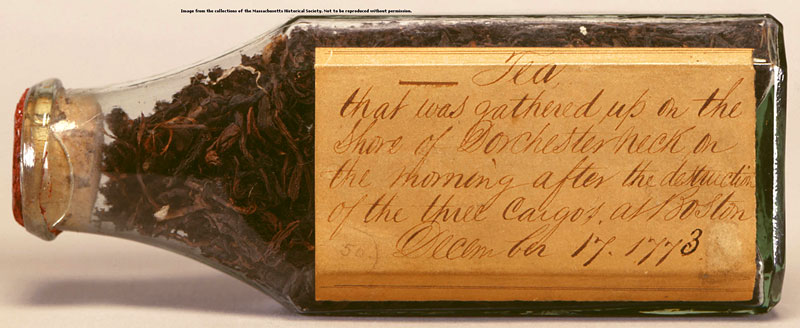Oh, in today's lexicon, it most certainly was terrorism as well as sedition and insurrection, and if today's democrats were around back then, they would have been reporting the people who did it to the British authorities, demanding their immediate executions, the seizure of all their property, and their families driven into the streets so the democrats could harass and physically force them from the area. In short, today's democrats are the British Loyalists of the Revolutionary era. Certainly not the patriots.
~~~~~~
Indeed, in the eyes of the British it was sedition. In the eyes of the Colonists it was an act of rebellion against inordinate high taxes imposed upon them.
Exactly 250 years from the event that started the Revolution
Exactly 250 years ago, on Dec. 16, 1773, a gang of rowdies, some dressed as Mohawk braves, boarded three merchant ships in Boston Harbor and, over three hours, dumped 342 chests of tea into the cold waves. A new law had, in fact, lowered the price of tea, but they still resented paying a token

www.washingtonexaminer.com
18 Dec 2023 ~~ By Dan Hannan
Exactly 250 years ago, on Dec. 16, 1773, a gang of rowdies, some dressed as Mohawk braves, boarded three merchant ships in
Boston Harbor and, over three hours, dumped 342 chests of tea into the cold waves. A new law had, in fact,
lowered the price of tea, but they still resented paying a token levy on it.
Everyone knows the American Revolution began as a
taxpayer revolt. What not everyone realizes is that that taxpayer revolt started on the other side of the Atlantic.
Great Britain had had to whack up taxes to pay for the French and Indian War, and residents of the colonies were largely exempt. By the late 1760s, the average British adult paid 25 shillings a year in tax, but the average colonist paid only sixpence. British MPs, under pressure from their hard-pressed constituents, wanted to address this imbalance by making Americans assume part of the cost of their own defense.
WILL THE ECONOMY GET BETTER IN 2024?
What happened next was, in one of those ironies in which history abounds, enormously expensive for all involved. The country gentlemen in Parliament who had authorized the use of force to get revenue from the colonies ended up imposing vast new land and legacy duties on their constituents to pay for the war. American patriots who had taken up arms rather than pay what was demanded ended up, after independence, taxing themselves far more harshly than they had ever been taxed under the crown.
It turns out that people don’t care about low taxes nearly as much as they think they do. Or, more precisely, that fiscal conservatism is the first thing to go in a crisis.
The modern Tea Party movement, which claimed direct inspiration from those Bostonian hotheads, has followed the same trajectory, losing interest even as spending has surged.
“Because of tariffs we will be able to start paying down large amounts of the $21 trillion in debt that has been accumulated, much by the Obama administration,” former President Donald Trump declared at the start of his presidency, forgetting that tariffs are themselves a tax on Americans.
~Snip~
Well, I care. I care that the U.S. deficit is now the single biggest threat to its security and, by implication, the survival of the Western world order. I don’t believe that the Republican congressmen refusing to fund Ukraine are chiefly motivated by parsimony. Dislike of President Joe Biden, a lingering resentment of Ukraine’s cameo role in the Trump impeachment, and a fear of Putin-leaning primary voters
are a bigger factor. But if the United States were running a surplus, they would have no excuse.
The sad fact is that, during the lockdowns, a lot of people came to expect government handouts. The reason there is no meaningful Tea Party movement is that there is no demand for one. What a sad way to mark the anniversary.




